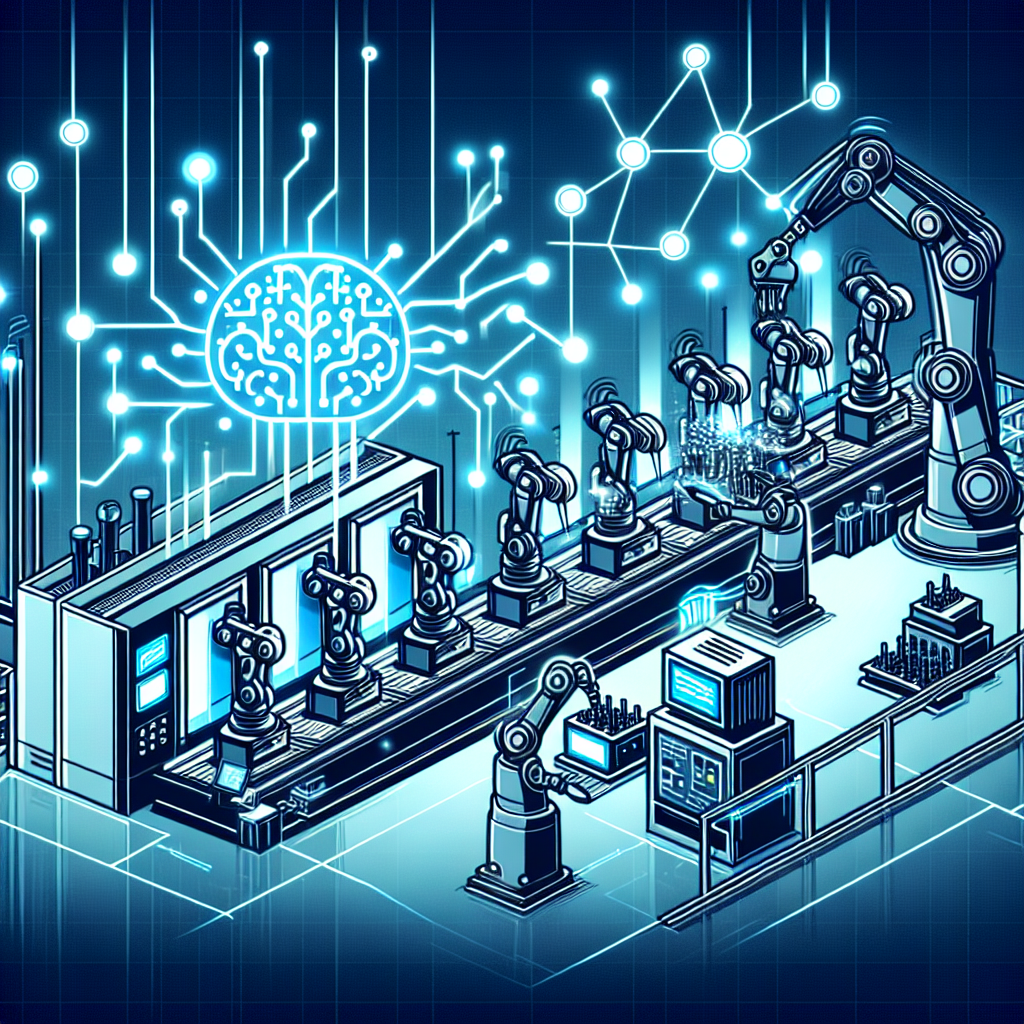The Impact of AI on Manufacturing Process Optimization
Artificial Intelligence (AI) has been revolutionizing the manufacturing industry in recent years, transforming the way companies produce goods and optimize their processes. With AI technologies becoming more sophisticated and accessible, manufacturers are leveraging these tools to improve efficiency, reduce costs, and enhance product quality. In this article, we will explore the impact of AI on manufacturing process optimization and how it is reshaping the industry.
1. Improved Predictive Maintenance
One of the key areas where AI is making a significant impact on manufacturing is predictive maintenance. By utilizing machine learning algorithms, manufacturers can analyze data from sensors and equipment to predict when maintenance is required before a breakdown occurs. This proactive approach not only reduces downtime and costly repairs but also extends the lifespan of equipment, leading to increased productivity and efficiency.
2. Enhanced Quality Control
AI-powered image recognition and machine learning algorithms are being used to improve quality control processes in manufacturing. By analyzing images of products in real-time, AI can detect defects and anomalies that are not visible to the human eye, ensuring that only high-quality products are delivered to customers. This not only reduces waste and rework but also enhances customer satisfaction and brand reputation.
3. Optimal Production Planning
AI algorithms are helping manufacturers optimize production planning by analyzing historical data, market demand, and supply chain information to recommend the most efficient production schedules. By considering various factors such as machine availability, labor costs, and material requirements, AI can help manufacturers maximize output while minimizing costs and lead times, resulting in improved operational efficiency and profitability.
4. Intelligent Inventory Management
AI is also transforming inventory management in manufacturing by predicting demand, optimizing stock levels, and automating replenishment processes. By analyzing historical sales data, market trends, and supplier performance, AI can help manufacturers reduce stockouts, minimize excess inventory, and improve cash flow. This enables companies to operate more efficiently and respond quickly to changing market conditions.
5. Real-time Monitoring and Control
AI-powered monitoring systems are enabling manufacturers to track production processes in real-time, detect anomalies, and make adjustments to optimize performance. By integrating sensors, IoT devices, and AI algorithms, manufacturers can monitor critical parameters such as temperature, pressure, and speed to ensure that production runs smoothly and efficiently. This proactive approach minimizes disruptions, improves product quality, and enhances overall operational performance.
6. Sustainable Manufacturing Practices
AI is also driving sustainability in manufacturing by optimizing energy consumption, reducing waste, and minimizing environmental impact. By analyzing data from sensors and equipment, AI can identify opportunities to improve energy efficiency, reduce emissions, and implement sustainable practices throughout the production process. This not only benefits the environment but also helps manufacturers save costs and enhance their corporate social responsibility.
7. Enhanced Worker Safety
AI technologies are improving worker safety in manufacturing by identifying potential hazards, predicting safety risks, and providing real-time alerts to prevent accidents. By analyzing data from sensors, cameras, and wearable devices, AI can monitor worker behavior, assess ergonomic risks, and recommend safety measures to prevent injuries and ensure a safe working environment. This proactive approach not only protects workers but also enhances productivity and morale in the workplace.
FAQs
Q: How can AI help manufacturers optimize production planning?
A: AI algorithms can analyze historical data, market demand, and supply chain information to recommend the most efficient production schedules, considering factors such as machine availability, labor costs, and material requirements. This enables manufacturers to maximize output while minimizing costs and lead times, improving operational efficiency and profitability.
Q: How does AI enhance quality control in manufacturing?
A: AI-powered image recognition and machine learning algorithms can analyze images of products in real-time to detect defects and anomalies that are not visible to the human eye. This ensures that only high-quality products are delivered to customers, reducing waste and rework, and enhancing customer satisfaction and brand reputation.
Q: What are the benefits of AI-powered predictive maintenance in manufacturing?
A: AI algorithms can analyze data from sensors and equipment to predict when maintenance is required before a breakdown occurs, reducing downtime, costly repairs, and extending the lifespan of equipment. This proactive approach improves productivity and efficiency, leading to significant cost savings for manufacturers.
In conclusion, AI is transforming the manufacturing industry by optimizing processes, enhancing quality, and driving sustainability. By leveraging AI technologies, manufacturers can improve efficiency, reduce costs, and deliver high-quality products to customers. With continued advancements in AI, the future of manufacturing is set to be more intelligent, agile, and competitive than ever before.

